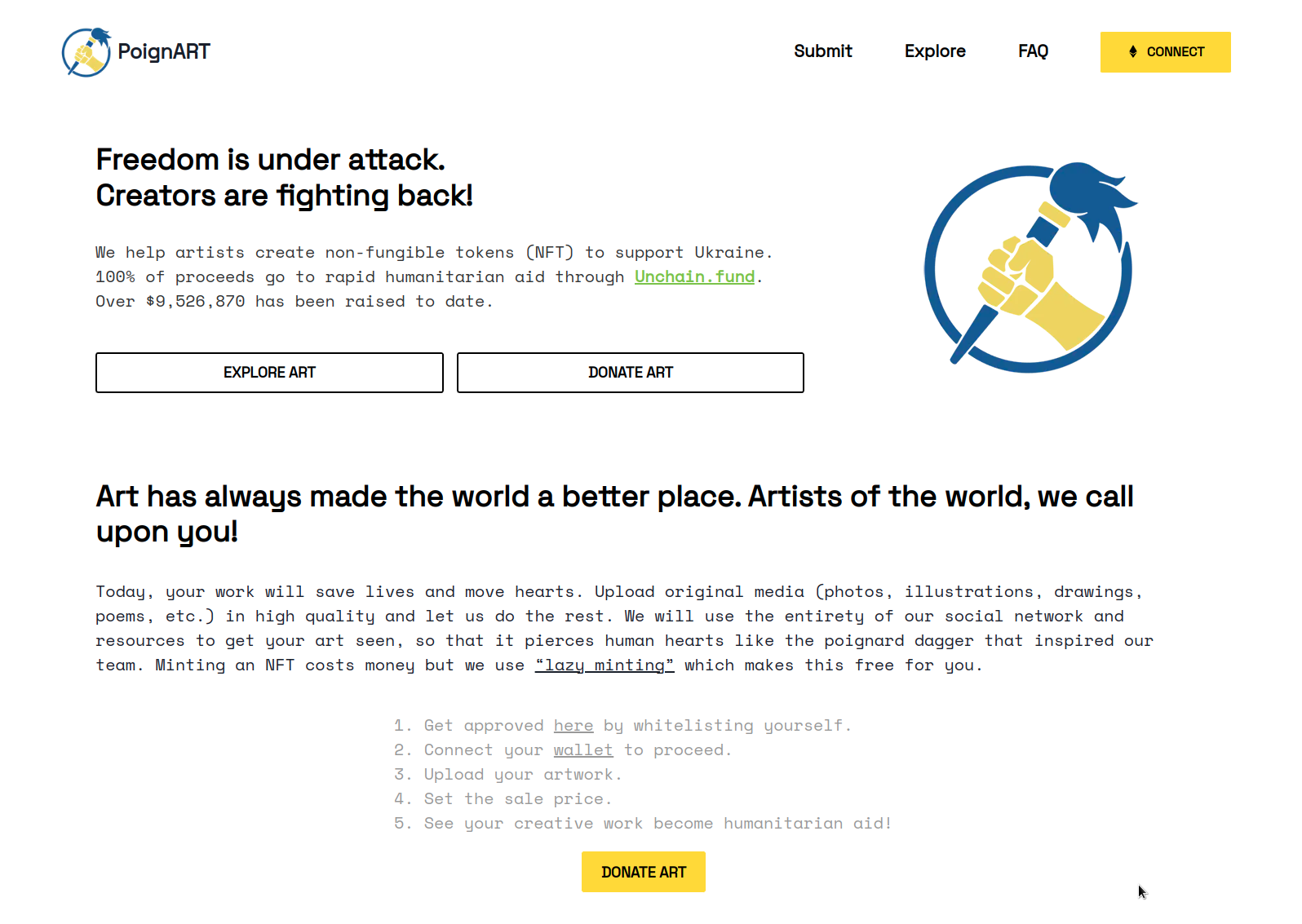PoignART
- typescriptmongodbipfsgraphprotocol
PoignART emerged as a response to the humanitarian crisis unfolding during the Ukraine War. In the face of displacement and suffering, a group of friends conceptualized a platform to sell art as NFTs, with proceeds directed towards funding NGOs in Ukraine. The platform aims to evoke empathy and solidarity for Ukrainians affected by the Russian invasion, amplifying the values of freedom and self-expression through art. Developed primarily as a backend solution by me using TypeScript and MongoDB, PoignART stores art before minting NFTs. The frontend, design, and smart contracts were crafted by other members of the PoignART team.
PoignART's smart contracts are designed to allow artists to create "vouchers" containing their art and pricing, which users can redeem to mint NFTs. The backend infrastructure securely stores art assets, ensuring seamless integration with the frontend and smart contracts. Despite straightforward development processes, challenges arose in sourcing art donations and attracting buyers within a limited timeframe to expedite fundraising for Ukraine.
The primary hurdles faced during the project included sourcing art donations and engaging buyers within a tight timeframe to expedite fundraising for Ukraine. Overcoming these challenges required concerted efforts from the team to secure art contributions and promote the platform effectively. Despite these obstacles, PoignART successfully raised a significant amount of funds for Ukraine.
PoignART's efforts culminated in the raising of thousands of dollars, which were subsequently donated to support Ukrainians affected by the conflict. By harnessing the power of art and compassion, the platform demonstrated the potential for collective action to make a tangible impact in times of crisis. The success of PoignART underscores the capacity of technology and creativity to mobilize support and solidarity for humanitarian causes.
